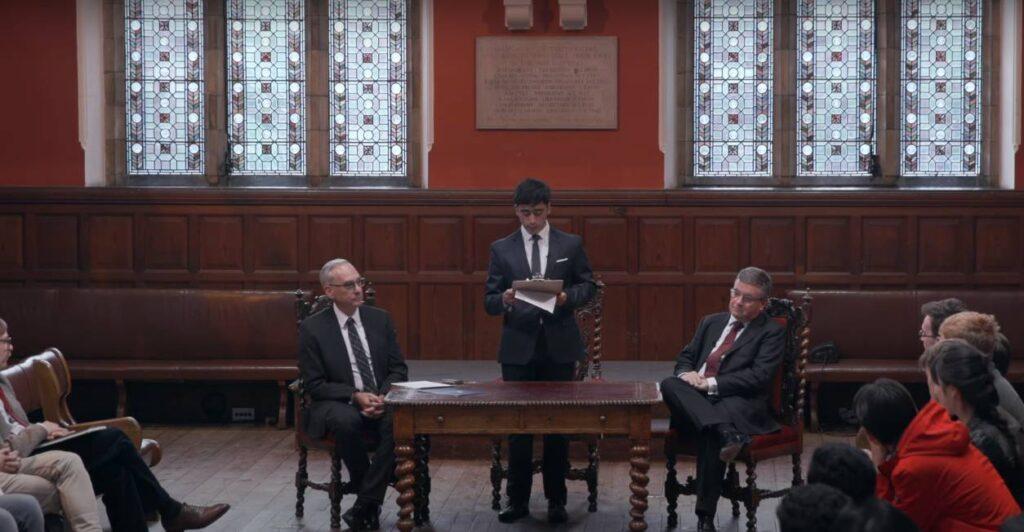The Uncodified Constitution of the UK, which means that it does not have a single written document that defines and regulates the powers and functions of the state. Instead, the UK’s constitution is derived from various sources, such as statutes, common law, conventions, and international treaties. These sources are not always consistent or coherent, and they can be changed or interpreted in different ways by different actors.
We will examine the role and status of Parliament in the UK’s constitutional system and how it affects the balance of power and accountability within the state. Parliament is the supreme legislative authority in the UK, which consists of two chambers: the House of Commons and the House of Lords. We will provide some information about the structure and functions of Parliament, as well as some of the constitutional issues and challenges that arise from its role and status.
The Structure and Functions of Parliament in the UK
Parliament is the supreme legislative authority in the UK, which consists of two chambers: the House of Commons and the House of Lords. The House of Commons is the lower house, which represents the people. House of Lords is the upper house, which represents various interests and groups.
The House of Commons:
It has 650 members, who are elected by the people in general elections held every five years or less. Each member represents a constituency, which is a geographical area with a population of about 70,000 people. The members are also known as MPs (Members of Parliament).
The main functions of the House of Commons are to:
- Make laws by passing bills through various stages.
- Scrutinize and control the executive branch by asking questions, debating, voting, and forming committees.
- Represent and respond to the interests and concerns of the people and the regions by receiving petitions, consulting, conducting inquiries, and producing reports.
The House of Lords:
Various methods appoint about 800 members to the House of Lords. The Prime Minister or political parties nominate some of them as life peers for their expertise or service. Some are hereditary peers, who inherit their titles from their ancestors. Others are bishops of the Church of England, who represent the established religion. Some are law lords, who are senior judges who act as the highest court of appeal.
The main functions of the House of Lords are to:
- Make laws by reviewing and revising bills passed by the House of Commons.
- Scrutinize and influence the executive branch by asking questions, debating, voting, and forming committees.
- Provide expertise and experience on various matters by drawing on their diverse backgrounds and perspectives.
The Constitutional Issues and Challenges: The Uncodified Constitution of the UK
Parliament’s role and status in The Uncodified Constitution of the UK raise some constitutional issues and challenges, such as:
The Doctrine of Parliamentary Sovereignty:
The doctrine of parliamentary sovereignty means that Parliament can make or change any law it wishes and that no other body can override or challenge its decisions. Factors have challenged or modified this doctrine, which is the cornerstone of the UK’s uncodified constitution such as:
- Devolution: The regional governments of Scotland, Wales, and Northern Ireland have some powers to make laws and policies on certain matters. Parliament can still make laws for the whole or any part of the UK and change or end the regional governments.
- Human rights: The UK has signed international treaties that protect the rights and freedoms of every human being. The UK government and Parliament must respect and uphold these rights. The Human Rights Act 1998 allows people to challenge public authorities that violate their rights in UK courts.
- Judicial review: The courts can check and challenge the acts or decisions of public authorities, including Parliament and the government, on legal grounds. The courts can order them to fix any unlawful or incompatible act or decision. The courts cannot cancel or change an act of Parliament, as that would go against parliamentary sovereignty.
- European integration: The UK is a member of the EU, which is a group of European countries that cooperate and integrate on various matters. The UK must follow the EU laws and decisions as part of its membership. Parliament can still leave or change its membership terms with the EU, as well as make laws that go against or overrule EU law.
The Relationship between Parliament and the Crown:
The term “the relationship between Parliament and the Crown” refers to the monarch and his or her prerogative powers. These powers are residual or discretionary powers that belong to the monarch under his or her position as head of state. The powers are exercised by or on behalf of the monarch, such as:
- Granting royal assent: Giving formal approval to an act of Parliament before it becomes law.
- Appointing ministers: Choosing the members of the government who are responsible for running different departments or portfolios.
- Dissolving Parliament: Ending a parliamentary session before its normal term and calling for a general election.
- Declaring war: Authorizing the use of military force against another state or entity.
- Making treaties: Entering into agreements with other states or organizations on various matters.
These powers are limited or regulated by conventions, statutes, or courts, such as:
- Conventions: Unwritten rules or practices that are followed by custom. For example, the monarch always approves bills, appoints the Prime Minister, dissolves Parliament on advice, and declares war or makes treaties with consent.
- Statutes: Written laws made by Parliament that can limit or change the monarch’s powers. For example, the Human Rights Act 1998 makes the monarch respect human rights. The Constitutional Reform Act 2005 gives some of the monarch’s powers to other bodies. The European Union (Withdrawal) Act 2018 limits the government’s power to use the monarch’s powers for Brexit.
- Courts: Judicial bodies that can check and challenge the use of the monarch’s powers on legal grounds. For example, in the Miller cases of 2016 and 2019, the Supreme Court said that the government could not use the monarch’s powers to leave the EU or to suspend Parliament without permission.
The Reform of Parliament:
The reform of Parliament refers to the various proposals and attempts to change or improve the composition, functions, or procedures of Parliament. Some of the major reforms are:
- Reducing the House of Lords: Some think this chamber is undemocratic and unrepresentative. Some proposals are to abolish it. They elect or partly elect it, cut, remove hereditary or religious members, or limit its power over bills.
- Introducing proportional representation or fixed-term parliaments for the House of Commons: Some think this chamber is unfair and unstable.
- Some ideas are to change to a proportional voting system and fix each parliament’s term. They are Single transferable vote or mixed-member proportional and Four or five years.
- Enhancing public participation or transparency in parliamentary activities: Some want to boost public trust and involvement in politics and democracy. Some ideas are to increase public input and information on bills, policies, activities, and documents.
- Creating a written constitution for the UK: Some want to make the rules and principles of the state and its institutions clearer and more fixed. Some ideas are to write a new document that sets and controls the powers and functions of Parliament, the government, the courts, and other bodies; put all the existing constitutional laws into one document; and have a vote or a meeting to agree or change a written constitution.
Parliament is the main law-making and watchdog body in the UK’s unwritten constitution. It represents the people and regions, but also faces some issues and challenges. Parliament’s role and status in The Uncodified Constitution of the UK are important and relevant for understanding the state’s politics and prospects. It legislates, balances power, represents, protects, and resolves.
Also, Read: The United States Constitution






